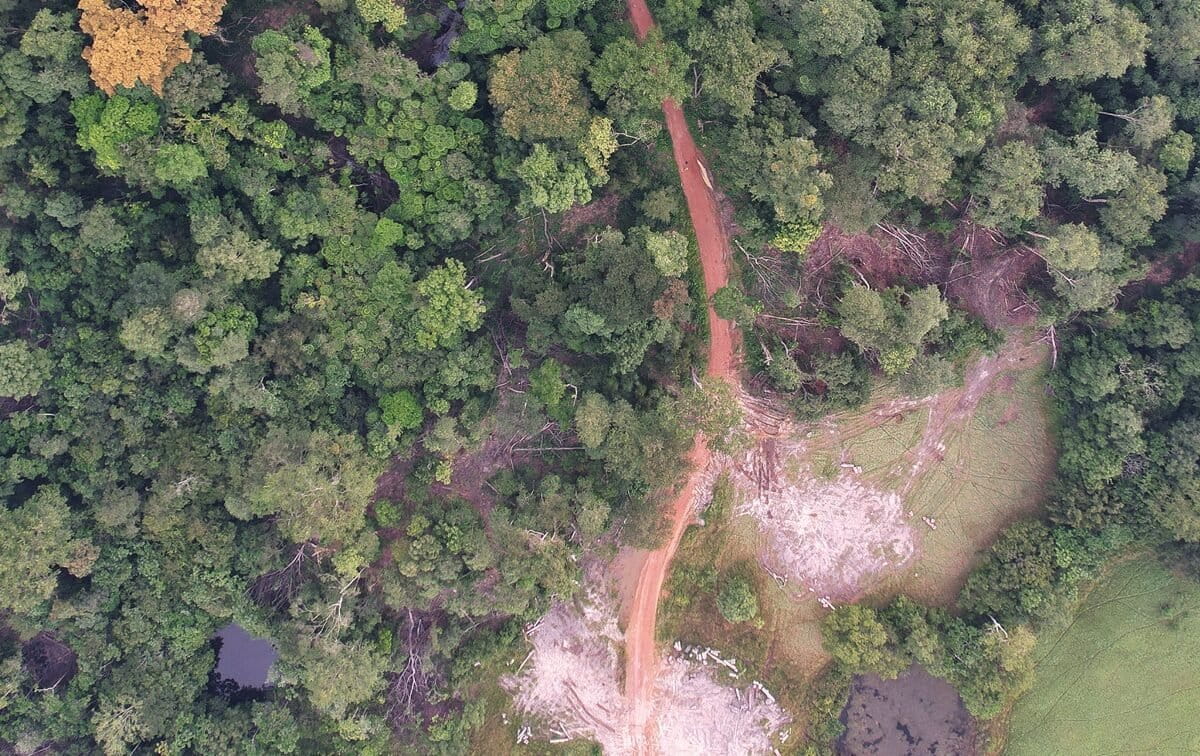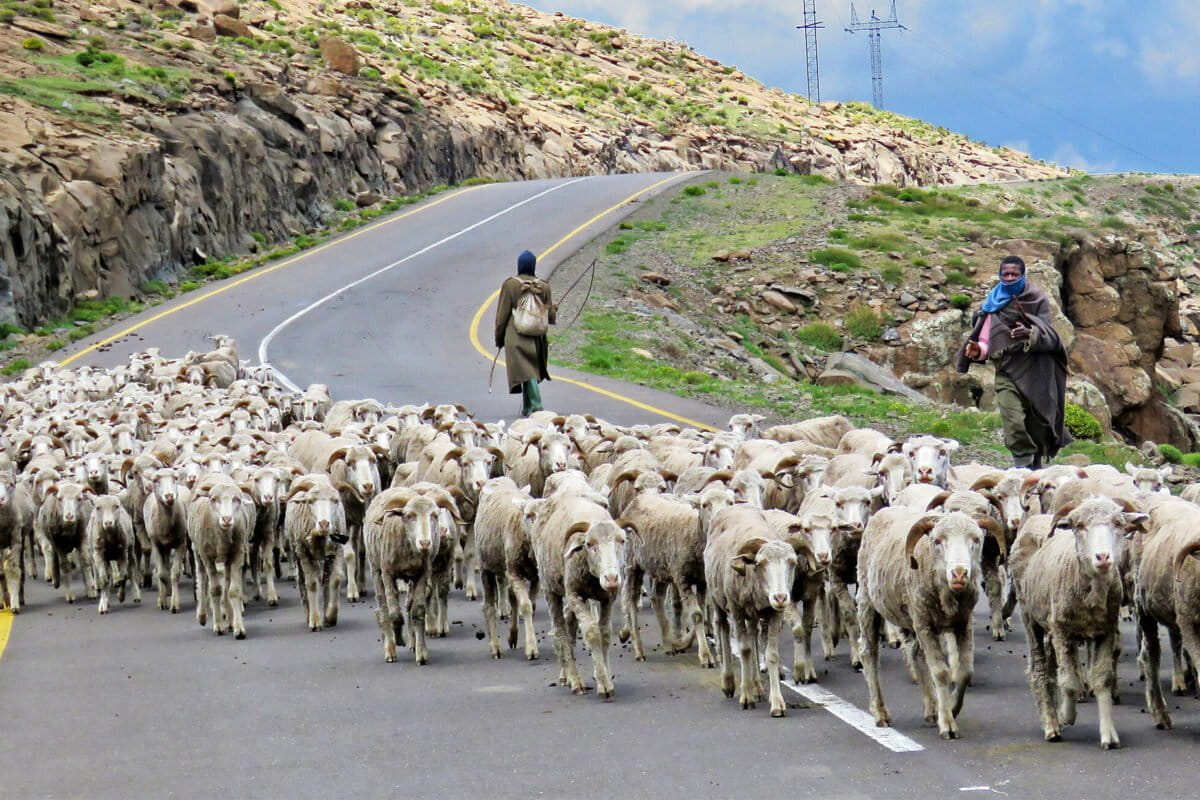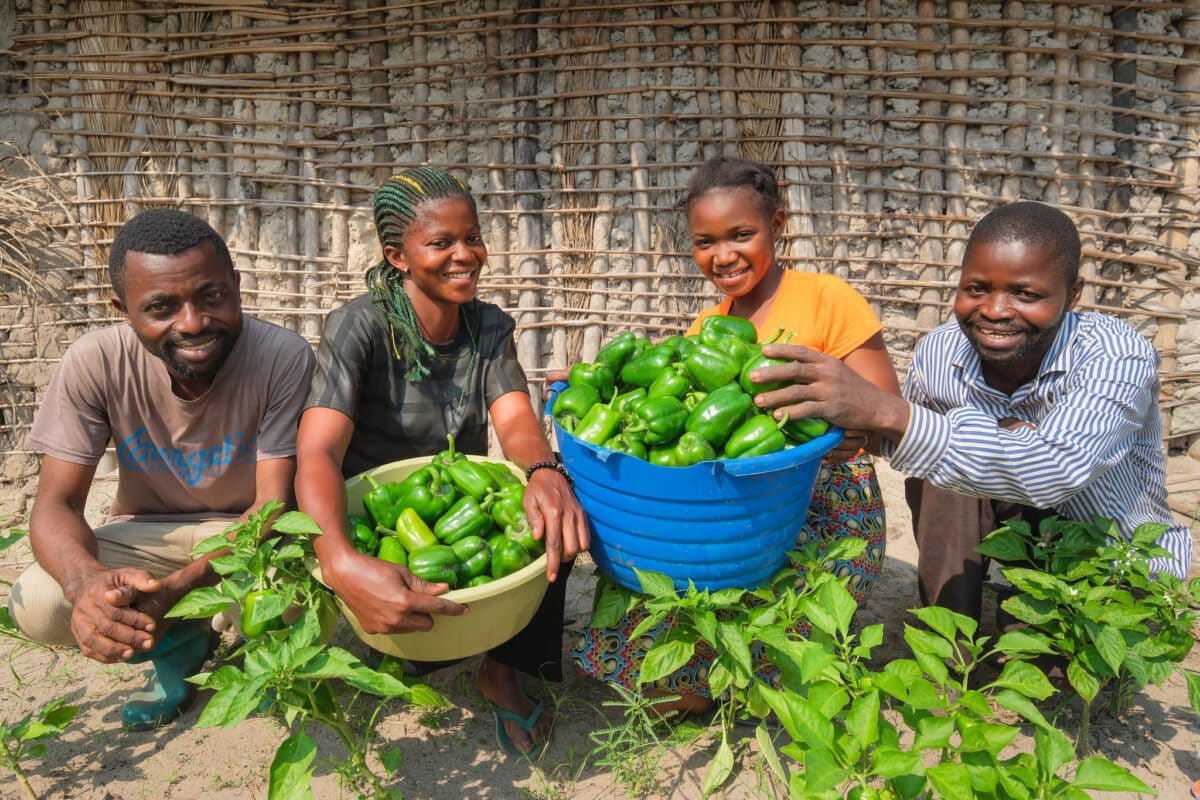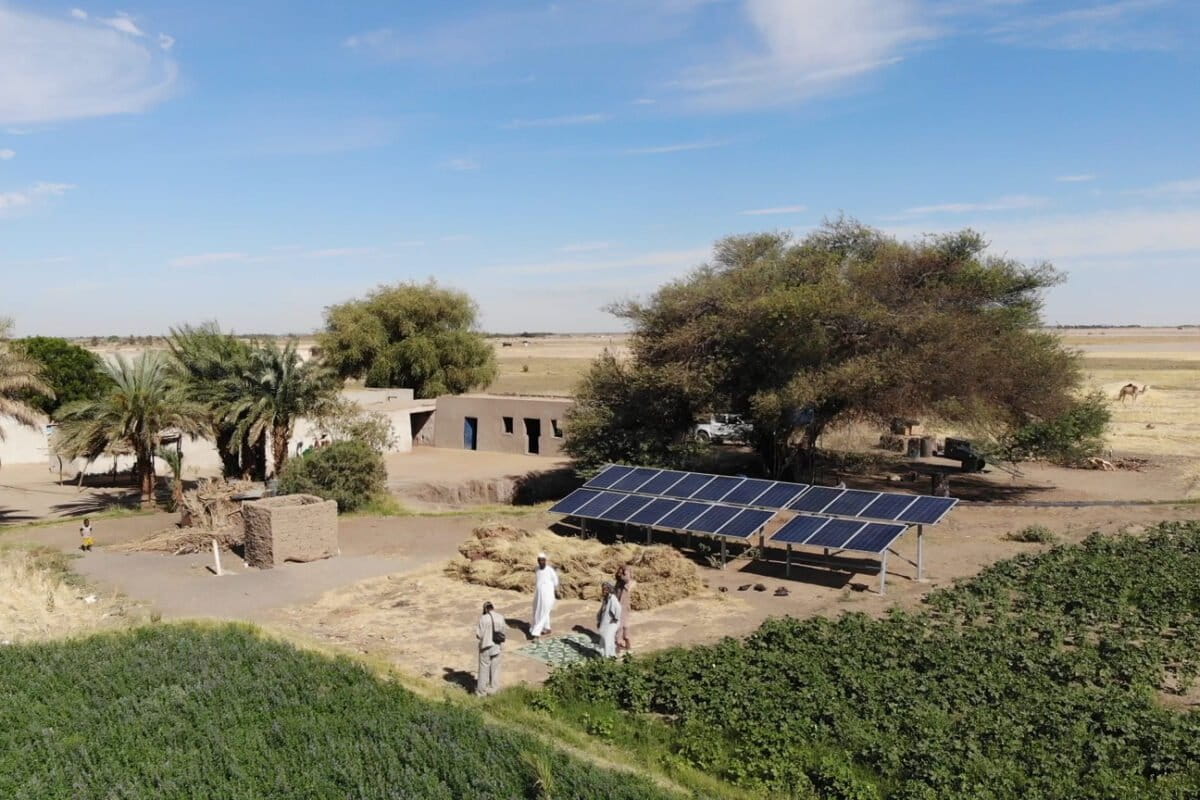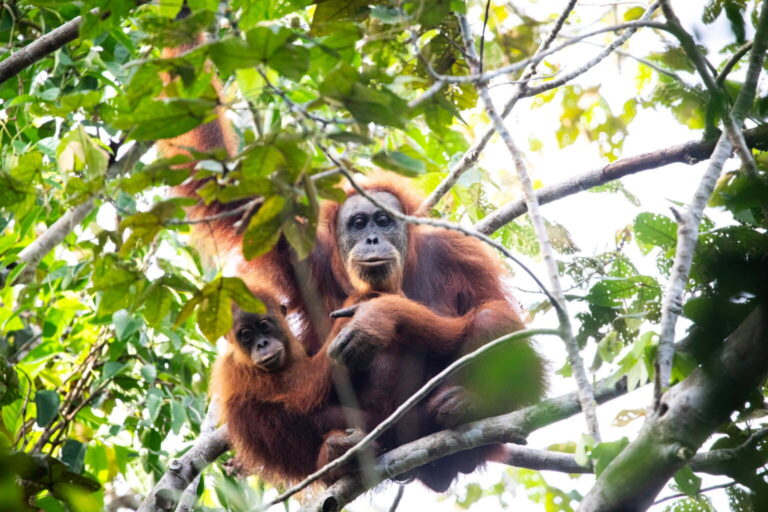- In April 2025, members of the community forest monitoring committee from the Kakataibo Indigenous community in Peru’s Mariscal Cáceres province were attacked while patrolling their ancestral territory.
- Organizations that support environmental defenders have criticized the slow response and lack of action from the Intersectoral Mechanism for the Protection of Human Rights Defenders.
- For several months, emails and formal requests for meetings and other forms of support have gone unanswered.
- According to the Ministry of Justice and Human Rights, between April 2021 and April 2025, the Intersectoral Mechanism registered 706 human rights defenders and 64 of their family members.
On April 13, 2025, members of the community forest monitoring committee from the Kakataibo Indigenous community faced an attack while carrying out a routine patrol of their ancestral territory in Mariscal Cáceres province, Peru. The team had set out to monitor forest conditions, inspect areas flagged for deforestation and oversee the integrity of the community’s boundaries.
But while surveying an area near a neighboring settlement, they discovered that approximately one and a half hectares (3.7 acres) of land within their territory had been illegally cleared. As the committee prepared to establish a temporary camp in the area to continue their work over the next four days, a group of people from the nearby settlement arrived, armed with stones, sticks and machetes, and forcibly expelled them from the site.

As a result, three members of the Kakataibo community were injured and had to be taken to the health post in the Indigenous community of Yamino, the closest location to where the attack occurred. They were later transferred to the health center in the city of Aguaytía, in the province of Padre Abad, Ucayali.
On this occasion, there were no serious injuries, and those wounded recovered quickly. However, delays in response and the obstacles often imposed by the justice system itself worsen the situation faced by environmental defenders in Peru, say civil society organizations.
According to the country’s Ministry of Justice and Human Rights, however, statements that defenders face delays in getting a response through the mechanism available to support their safety are inaccurate and the mechanism continues to help human rights defenders.
Delays in the justice system?
“When we arrived in the area, we tried to initiate dialogue. But, instead, we were met with insults and verbal aggression,” recalls one of the leaders of the Mariscal Cáceres community. “People from the nearby settlement began pushing the committee members, and that’s when the physical attack began. All we did was defend ourselves.”
In addition to the attack, the settlers blocked the road leading to the Mariscal Cáceres community, cutting off access for nearly 48 hours. It was not until the representatives from the Public Prosecutor’s Office arrived that the blockade was lifted, according to Álvaro Másquez, a lawyer with the Legal Defense Institute (IDL in Spanish), who is closely monitoring the case.

Másquez explains that there were difficulties in filing a police report in Aguaytía, as officers at the station claimed that the incident had already been reported by members of the nearby settlement.
“This is a legal absurdity and a discriminatory barrier against Indigenous communities,” Másquez says. “Using the excuse that the incident had already been reported — and therefore couldn’t be reported twice –— the police prevented the Mariscal Cáceres community from filing their complaint for several hours.”
Faced with the refusal, the community contacted the Ministry of Justice and Human Rights — specifically the official in charge of the Directorate of Human Rights Policy and Management within the Justice sector — as well as the Intersectoral Mechanism for the Protection of Human Rights Defenders, who intervened with the police station to ensure that the community’s complaint was formally registered.
According to several civil society organizations that work directly with at-risk environmental defenders and threatened individuals, in recent months the Intersectoral Mechanism for the Protection of Human Rights Defenders — which is supposed to ensure the safety of environmental defenders — has failed to respond to their communications and meeting requests or to follow up processes on their cases.
“It’s as if the Intersectoral Mechanism no longer exists. They don’t respond to any communication. For instance, we’re supporting the case of the Nueva Austria del Sira community, which has precautionary measures from the Inter-American Commission on Human Rights,” says Mar Pérez, head of the Protection Unit for Defenders at the National Coordinator of Human Rights (CNDDHH in Spanish).
“We’ve sent emails repeatedly requesting the convening of the coordination table, but they haven’t even responded. We also sent a formal letter to the director of human rights policy and management, who is in charge of the Intersectoral Mechanism, and they haven’t responded either,” Pérez adds.

Pérez points to a clear example: An email sent on Jan. 22, 2025, in which they requested that “a meeting be convened as soon as possible to follow up on the implementation of the Nueva Austria Plan.” The email states, “We request that the Regional Directorate of Agriculture (DRA) of the Huánuco regional government be called to the meeting, since advancing the community’s legal recognition is a priority for its protection.”
Three weeks later, they had still not received a response. On Feb. 13, 2025, they reiterated their request but again received no reply. On April 8, 2025, they sent a formal letter with the same request. The document states that meetings should be convened every three months, but none have been held since August 2024.
“In practice, it’s as if the Intersectoral Mechanism has been deactivated,” says Pérez. “When Ángel [González, who was director of human rights policy and management until Oct. 25, 2024] left, the Intersectoral Mechanism was still functioning, albeit with many limitations. But there was at least an effort to coordinate with the involved sectors. Now they don’t even respond to us,” Pérez adds.
“We’ve lost our trust, not only in the Intersectoral Mechanism, but in the entire justice sector,” says Pérez, who for several years supported the Nueva Austria del Sira community, which has been threatened for more than 15 years by illegal loggers and land invaders involved in the illegal cultivation of coca leaves for drug trafficking.

“Nearly 20 families have been threatened. Even the community leader survived an assassination attempt by hired hitmen in 2019. At present, the threats have intensified because the community is demanding the cancellation of the logging permits that the regional government of Huánuco has been granting irregularly,” explains Pérez.
Challenges in supporting defenders
“In recent weeks, [Kakataibo] leaders have reported new threats, violence and tensions, similar to what happened in Mariscal Cáceres,” says Vladimir Pinto, coordinator for the nonprofit Amazon Watch in Peru.
According to Pinto, the Intersectoral Mechanism has also ceased to be a space for support or rapid response. “Many requests are not being addressed and the [regional roundtables for the protection of human rights defenders] are not functioning either. On our part, since we haven’t received responses to some of our more informal communications, we’ve stopped coordinating with them.”
In December 2024, the Regional Organization Aidesep Ucayali (ORAU in Spanish), an Indigenous organization, sent a letter requesting “an urgent virtual meeting between the institutions involved in the establishment of the Huánuco Regional Roundtable for Human Rights Defenders,” with the aim of coordinating with the Intersectoral Mechanism and defining effective protection measures for Kakataibo communities, which were ready to move forward with their land titling process. One of these communities, Unipacuyacu, has been waiting more than 30 years to secure legal recognition of its territory. However, this request, made on Dec. 5, 2024, has yet to be fulfilled.
“The work of the Intersectoral Mechanism is not being prioritized, and the dialogue tables that were being established have not been sustained. A void has been left,” says Pinto, who is concerned that, for several months, the Ministry of Justice and Human Rights — which is responsible for overseeing the Intersectoral Mechanism — had no officially appointed director for the role.
According to the ministry’s website, the new director of human rights policy and management, Diego Reátegui, assumed office on Apr. 12, 2025.
Mongabay Latam contacted the ministry to enquire about delays in responding to requests submitted by human rights defenders through the Intersectoral Mechanism and the ongoing lack of reply to formal written communications.

In a written response, the ministry stated that “this is inaccurate” since “the Intersectoral Mechanism receives intervention requests 24 hours a day, 7 days a week,” all of which are addressed. According to the document, “up to April 2025, the Intersectoral Mechanism has supported 50 human rights defenders — 35 men and 17 women — related to 32 risk situations.” It further explained that “all reported cases require a prior evaluation by the team to determine the appropriate strategy and response.”
The Ministry of Justice and Human Rights also indicated that between April 2021 and April 2025, the Intersectoral Mechanism received and registered 706 human rights defenders and 64 of their family members, related to 505 risk situations, such as drug trafficking, illegal logging and land trafficking.
For Pinto, the Intersectoral Mechanism was a space with “limited resources to handle the enormous responsibility it had,” but it had a team that worked hard to mobilize the state in response to the most urgent and critical cases.
Mariano Castro, former vice minister of environmental management at the Ministry of the Environment, points to several challenges currently undermining the Intersectoral Mechanism’s effectiveness. One major issue, he says, is that the 2025 national budget failed to allocate the necessary funding for its functioning.
“That significantly weakens the Intersectoral Mechanism,” he says.
A second issue is that the protection guidelines from the Ministry of the Interior — which define how the police should respond to cases involving human rights and environmental defenders — have yet to be approved. And the third issue, according to Castro, is the recent turnover of key personnel.
“This has further weakened the Intersectoral Mechanism, as those who left were people with knowledge about these issues.”

Castro also mentions that regional meetings, which “are important because they gather concerns and ground the Intersectoral Mechanism at the territorial level,” have not been held for several months. So far, eight regional roundtables have been established in Madre de Dios, Ucayali, Loreto, Amazonas, San Martín, Huánuco, Junín and Piura.
“They aren’t giving enough importance to a serious issue, which is reflected in the murders of human rights defenders in territories where there is extreme insecurity, the presence of illegal activities and widespread human rights violations,” Castro emphasizes.
Regarding the budget, the Ministry of Justice and Human Rights told Mongabay Latam that it “has an amount of 573,093.79 soles ($150,000) allocated to operational activities related to the Intersectoral Mechanism for the Protection of Human Rights Defenders,” meaning for “addressing risk situations and coordinating regional roundtables.” The ministry also specified that 22 sessions of these regional roundtables have been held and that regional liaisons in the departments where the roundtables have been established.
In a letter sent on April 8, 2025, to the Ministries of Justice and Human Rights and the Interior, Culture and the Environment, as well as the Public Prosecutor’s Office, the Ombudsperson’s Office and the police, Kakataibo Indigenous organizations and the IDL stated that since November 2021, they have been requesting protection measures for the Indigenous community of Mariscal Cáceres, a request that remains under review.
The letter also reports on the current situation and calls for the presence of state authorities “to sanction those responsible for the attacks, monitor the illegal activities taking place in the area and collaborate with organizations, such as the community monitoring committee and Indigenous patrols, which provide immediate assistance to the Kakataibo community in situations of risk.”
Banner image: According to the Ministry of Justice and Human Rights, more than 700 environmental defenders are currently registered with the Intersectoral Mechanism for the Protection of Human Rights Defenders. Image courtesy of Cooperación.
This article was first published here in Spanish on April 29, 2025.


